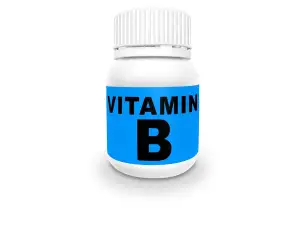Power Up Your Health with High Protein Vegetarian Foods: A Nutritional Guide for Plant-Based Protein Seekers

In recent years, there has been a growing interest in plant-based diets, with many individuals opting for vegetarian or vegan lifestyles. While some may worry about getting enough protein without consuming meat, there are plenty of high protein vegetarian foods available that can provide all the essential amino acids needed for optimal health.
Plant-based proteins are not only beneficial for vegetarians but also for those looking to reduce their intake of animal products. These foods offer a wide range of health benefits and can help power up your overall well-being. In this article, we will explore the benefits of incorporating high protein vegetarian foods into your diet and provide you with a nutritional guide to help you make informed choices about plant-based protein sources.
Benefits of incorporating high protein vegetarian foods into your diet
Incorporating high protein vegetarian foods into your diet offers numerous benefits. Firstly, it helps in maintaining a healthy weight as plant-based proteins are generally lower in calories and saturated fats compared to animal-based proteins. Secondly, vegetarian protein sources are rich in fiber, which aids digestion and promotes a feeling of fullness, reducing the risk of overeating. Additionally, these foods are packed with essential vitamins, minerals, and antioxidants that support overall well-being and strengthen the immune system. Lastly, studies have shown that a high protein vegetarian diet can lower the risk of chronic diseases such as heart disease, diabetes, and certain types of cancer. By embracing these nutrient-dense options, you can power up your health and enjoy a wide range of benefits.
Top sources of plant-based protein for vegetarians
Top sources of plant-based protein for vegetarians include legumes such as lentils, chickpeas, and black beans. These versatile ingredients can be used in a variety of dishes like soups, salads, and stews. Quinoa is another excellent source of protein that is also packed with essential amino acids. Other options include tofu, tempeh, and edamame which are all derived from soybeans. Nuts and seeds like almonds, chia seeds, and hemp seeds are also high in protein and can be enjoyed as snacks or added to smoothies and baked goods. Incorporating these foods into your diet will ensure you're getting the necessary protein for a healthy vegetarian lifestyle.
Nutritional value and protein content of each food
When it comes to incorporating high protein vegetarian foods into your diet, it's important to understand the nutritional value and protein content of each food. Here are some top sources of plant-based protein for vegetarians:
1. Lentils: These legumes are not only rich in protein but also packed with fiber, iron, and folate. With approximately 18 grams of protein per cooked cup, lentils are a great addition to soups, salads, and stews.
2. Quinoa: This ancient grain is a complete protein source, containing all nine essential amino acids. With about 8 grams of protein per cooked cup, quinoa can be used as a base for salads or as a side dish.
3. Chickpeas: These versatile legumes are not only high in protein (around 15 grams per cooked cup) but also provide fiber and essential minerals like iron and magnesium. They can be used to make hummus, roasted chickpea snacks, or added to curries and salads.
4. Tofu: Made from soybeans, tofu is an excellent source of plant-based protein (about 20 grams per half-cup). It is also low in calories and contains essential amino acids. Tofu can be grilled, stir-fried, or used in smoothies.
5. Greek Yogurt: While not vegan-friendly, Greek yogurt is a high-protein option for lacto-vegetarians (around 17 grams per 6-ounce serving). It is also rich in calcium and probiotics that promote gut health.
6. Chia Seeds: These tiny seeds are a nutritional powerhouse, offering around 5 grams of protein per ounce along with omega-3 fatty acids and fiber. They can be added to smoothies, oatmeal, or used as an egg substitute in baking.
By incorporating these high-protein vegetarian foods into your diet, you can ensure that you're meeting your protein needs while enjoying a variety of delicious meals.
Delicious recipes using high protein vegetarian ingredients
Delicious Recipes Using High Protein Vegetarian Ingredients:
1. Quinoa and Black Bean Salad:
- Cook quinoa and mix with black beans, diced tomatoes, corn, and chopped cilantro.
- Drizzle with a dressing made from lime juice, olive oil, garlic, and cumin.
- Serve as a refreshing salad or stuff it into a whole wheat pita for a satisfying lunch.
2. Lentil Curry:
- Sauté onions, garlic, and ginger in coconut oil.
- Add cooked lentils, diced tomatoes, vegetable broth, and curry powder.
- Simmer until flavors meld together and serve over brown rice or with naan bread.
3. Chickpea Spinach Curry:
- Sauté onions and garlic in olive oil until golden.
- Add chickpeas, spinach, diced tomatoes, coconut milk, and spices like cumin and turmeric.
- Let simmer until spinach wilts and serve with basmati rice or quinoa.
4. Tofu Stir-Fry:
- Marinate tofu in soy sauce, sesame oil, ginger, and garlic.
- Stir-fry tofu with colorful vegetables like bell peppers, broccoli florets, carrots, and snap peas.
- Serve over brown rice or noodles for a quick and protein-packed meal.
5. Veggie Burger:
- Mash cooked black beans with breadcrumbs, sautéed onions and garlic,
grated carrots or zucchini,
spices like cumin and paprika,
an egg (or flaxseed mixture for vegans),
form into patties,
pan-fry until golden brown,
serve on a whole wheat bun with your favorite toppings.
These recipes are not only delicious but also packed with protein from plant-based sources. Incorporate them into your diet to enjoy the benefits of high protein vegetarian foods while satisfying your taste buds.
Tips for maximizing protein absorption from plant-based sources
1. Combine complementary proteins: While plant-based proteins may not contain all the essential amino acids, combining different sources can provide a complete protein profile. For example, pairing beans with rice or lentils with quinoa ensures you get all the necessary amino acids.
2. Soak and sprout your legumes: Soaking legumes like chickpeas or lentils overnight can help break down anti-nutrients and increase their protein availability. Sprouting them further enhances nutrient absorption and makes them easier to digest.
3. Include vitamin C-rich foods: Vitamin C aids in the absorption of iron, an essential mineral found in many plant-based protein sources. Pairing your meals with citrus fruits, bell peppers, or leafy greens can enhance iron absorption.
4. Add healthy fats: Incorporating healthy fats like avocado, nuts, seeds, or olive oil into your meals can improve the bioavailability of fat-soluble vitamins and increase satiety. This helps ensure you get the most out of your plant-based protein sources.
5. Cook properly: Cooking methods like steaming, boiling, or baking can improve the digestibility and bioavailability of plant proteins. Avoid excessive frying or high-heat cooking as it may denature proteins and reduce their nutritional value.
By following these tips, you can optimize protein absorption from plant-based sources and support your overall health while enjoying a delicious vegetarian diet.
In conclusion, embracing a high protein vegetarian diet can be a game-changer for your overall health and well-being. By incorporating plant-based protein sources into your meals, you can power up your body with essential nutrients while reducing the intake of saturated fats and cholesterol found in animal products.
Not only does a high protein vegetarian diet support muscle growth and repair, but it also helps in weight management, improves digestion, and reduces the risk of chronic diseases such as heart disease, diabetes, and certain types of cancer.
Remember to vary your protein sources to ensure you are getting all the essential amino acids your body needs. Experiment with different recipes using beans, lentils, tofu, tempeh, quinoa, and other high protein vegetarian ingredients to keep your meals exciting and delicious.
To maximize protein absorption from plant-based sources, pair them with vitamin C-rich foods like citrus fruits or bell peppers. This will enhance iron absorption from plant-based proteins like spinach or chickpeas.
So why not take a step towards optimal health by incorporating more high protein vegetarian foods into your diet? Your taste buds and body will thank you for it!
Published: 09. 12. 2023
Category: Health



